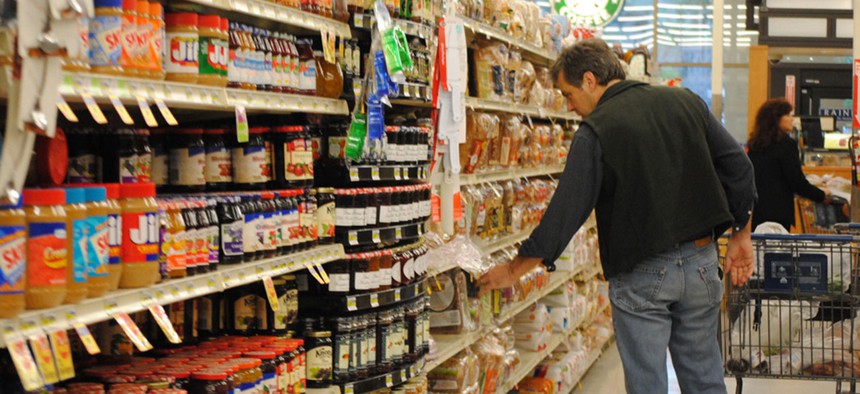
Flickr user Anthony Albright
The Federal Government May Finally Define 'Natural' Food
Can a chicken nugget or processed fruit snack ever really be considered "natural"?
Lemonade mix, chicken nuggets and fruit snacks are just a few of the products you may see at the supermarket with a “natural” claim on the packaging. But today, the US Food and Drug Administration announced that it was seeking comments on how the term should be defined, indicating that maybe—just maybe—there will finally be some meaningful regulation around a term found on $40.7 billion worth of food products in the US.
The word “natural” has a long and sordid history when it comes to federal oversight, beginning in the mid-1970s, when the Federal Trade Commission proposed defining natural foods as any “with no artificial ingredients and only minimal processing.” But it gave up in 1983, saying there were simply too many foods to consider.
In 1991, the FDA tried to define the term, asking the public for comments. But two years later, it concluded that while there was clearly a consumer and industry interest in “natural food,” “none of the comments provided FDA with a specific direction to follow for developing a definition.” This indecisiveness lasted for decades.
In a 2008 letter to the Corn Refiners Association, the FDA said it was sticking with its “case-by-case basis” approach, meaning it sends Warning Letters to companies it says are misusing the term. That has included, for example, warnings against advertising as “natural” bagels that included blueberries dried with the preservative potassium sorbate, and a “natural” lime juice that included the artificial preservative sodium bezoate.
Even after a request from three federal district court judges, in January 2014, the FDA declined to provide any definition beyond its non-legally binding policy that “natural” means that “nothing artificial or synthetic (including all color additives regardless of source) has been included in, or has been added to, a food that would not normally be expected to be in that food.”
The US Department of Agriculture plays a role here, too, depending on the food. Under its rules, “natural” meat and poultry products are those that contain no artificial ingredients and are minimally processed, though there are exceptions to that too. This definition has no bearing at all on how the animals were raised.
As lawsuits surrounding the term have piled up, food industry associations have joined in calls to define the term, with petitions submitted by the Sugar Association, Sara Lee Corporation and the Grocers Manufacturers Association. In 2006, Hormel asked the USDA for a legally enforceable definition, but after a public hearing and a period for citizens to submit comments, the USDA decided in 2009 that it would not define the term, either, citing a “lack of consensus” about what the word “natural” means.
All of this brings us to today, when the FDA is once again seeking public comment on the word. Both health advocates and representatives of the food industry say they are happy to move toward a standard definition. The Grocers Manufacturers Association told Quartz the call is “a welcome and necessary step” towards a federal definition. Food attorney Michele Simon also called it a “positive sign”—but noted that a weak definition of “natural” could make it easier to sell more under the claim, rather than less.
Simon also was quick to note that, “legally, this is not rulemaking,” meaning that any resulting definition from this process alone would not be legally binding.
The FDA isn’t promising that such a definition will actually result from the process. A spokesperson told Quartz, “The FDA will not make a decision on whether the agency will engage in rulemaking to establish a formal definition or not until after it has thoroughly reviewed all public comments and information submitted.”
The USDA did not immediately respond to inquiry about whether it would coordinate with FDA efforts.
(Image via Flickr user Anthony Albright)






